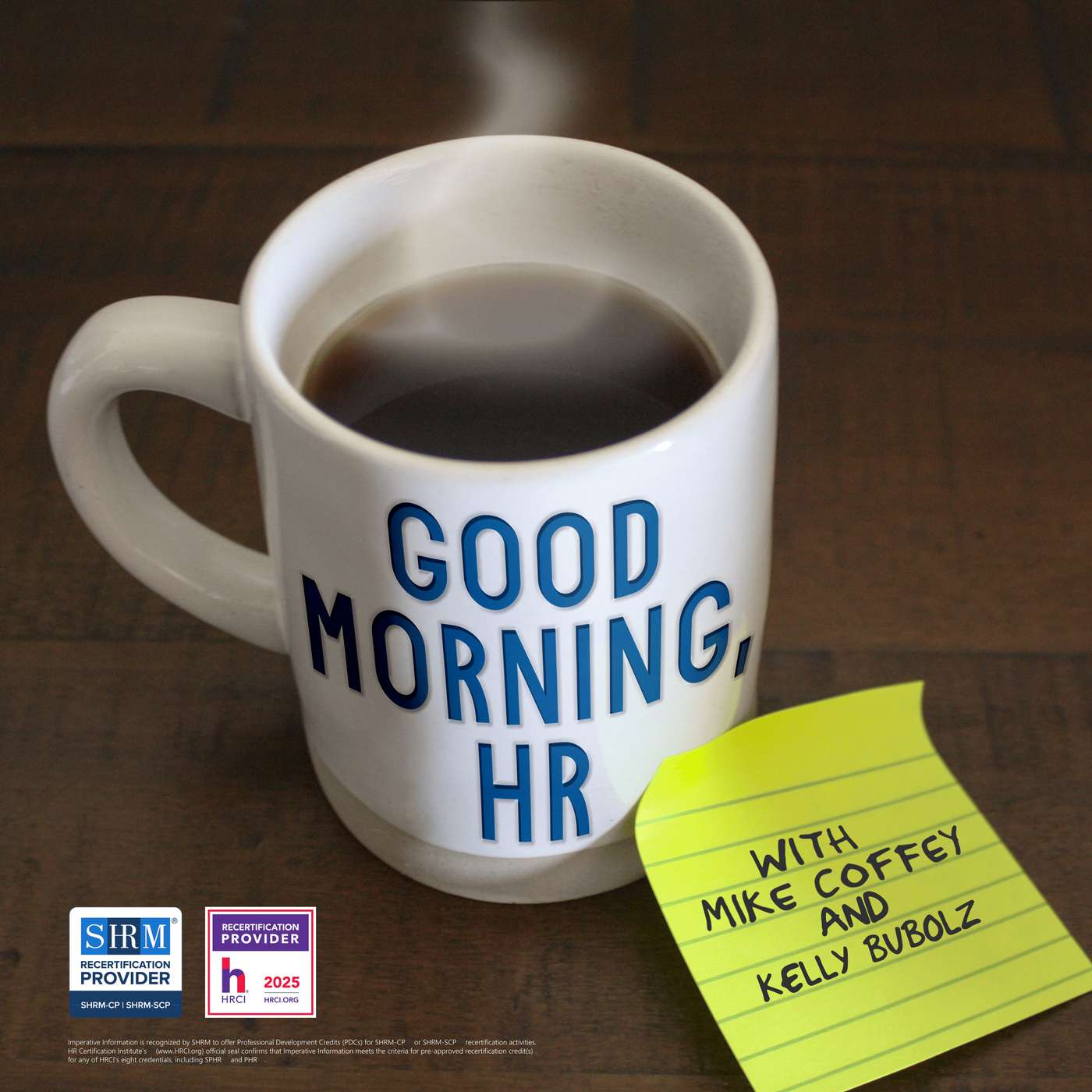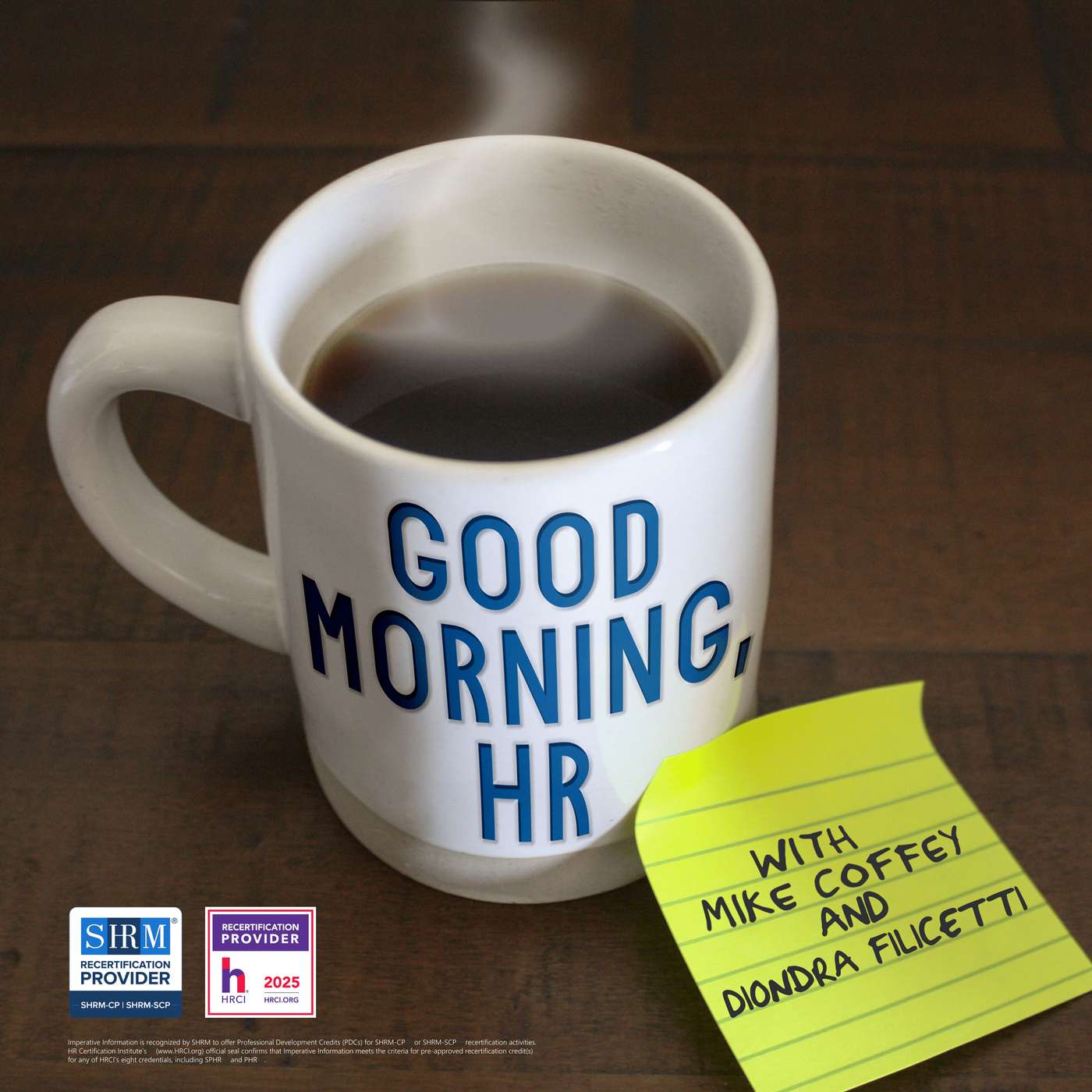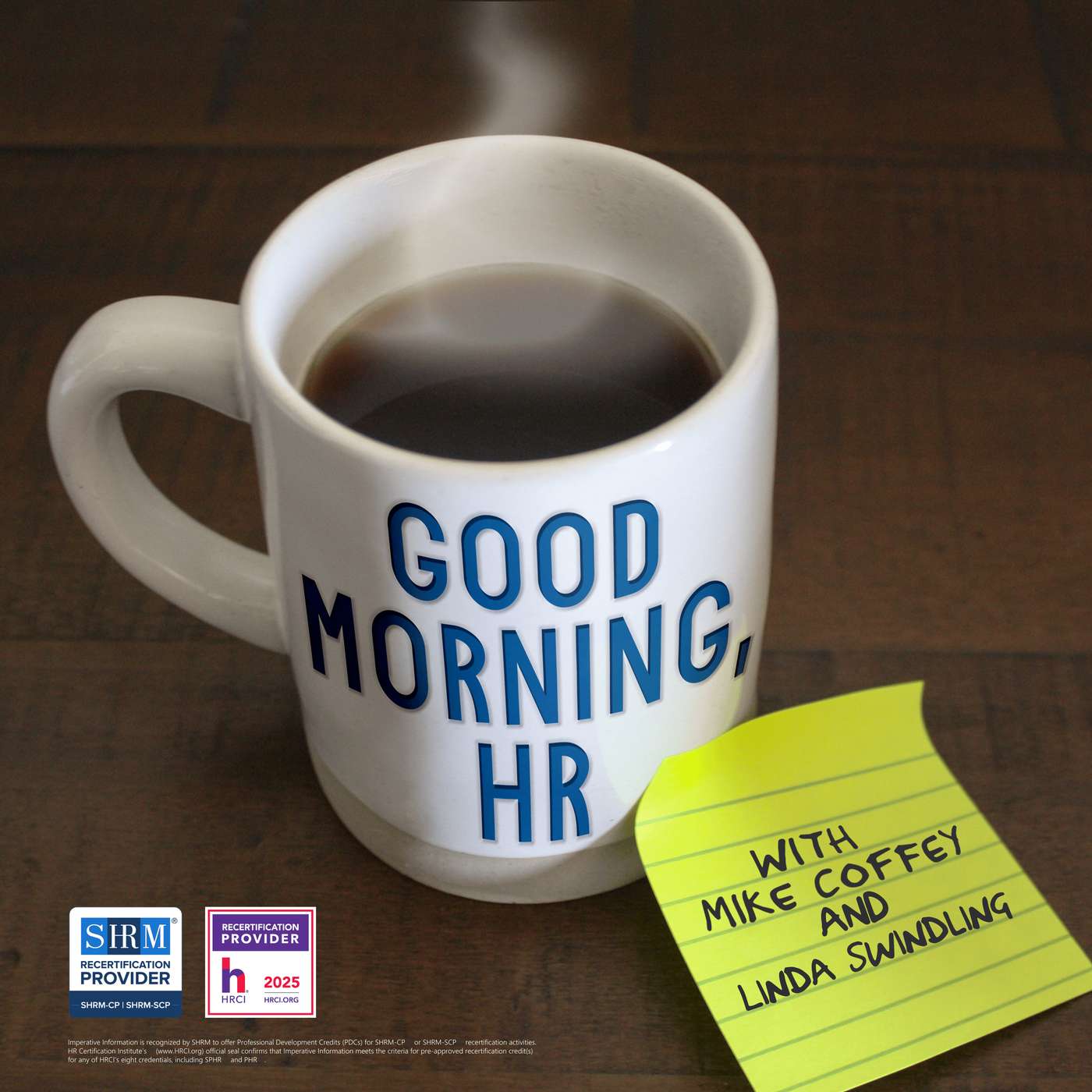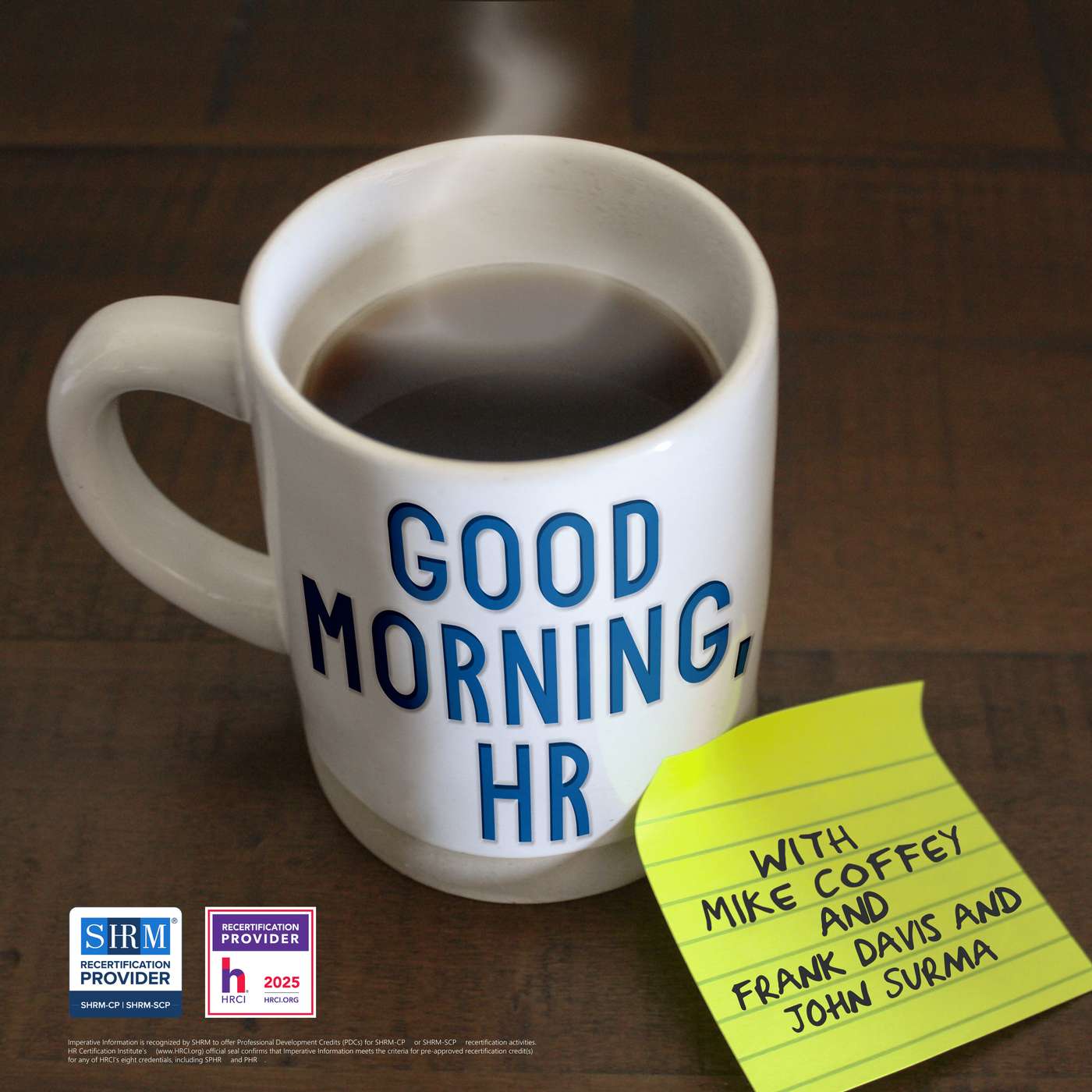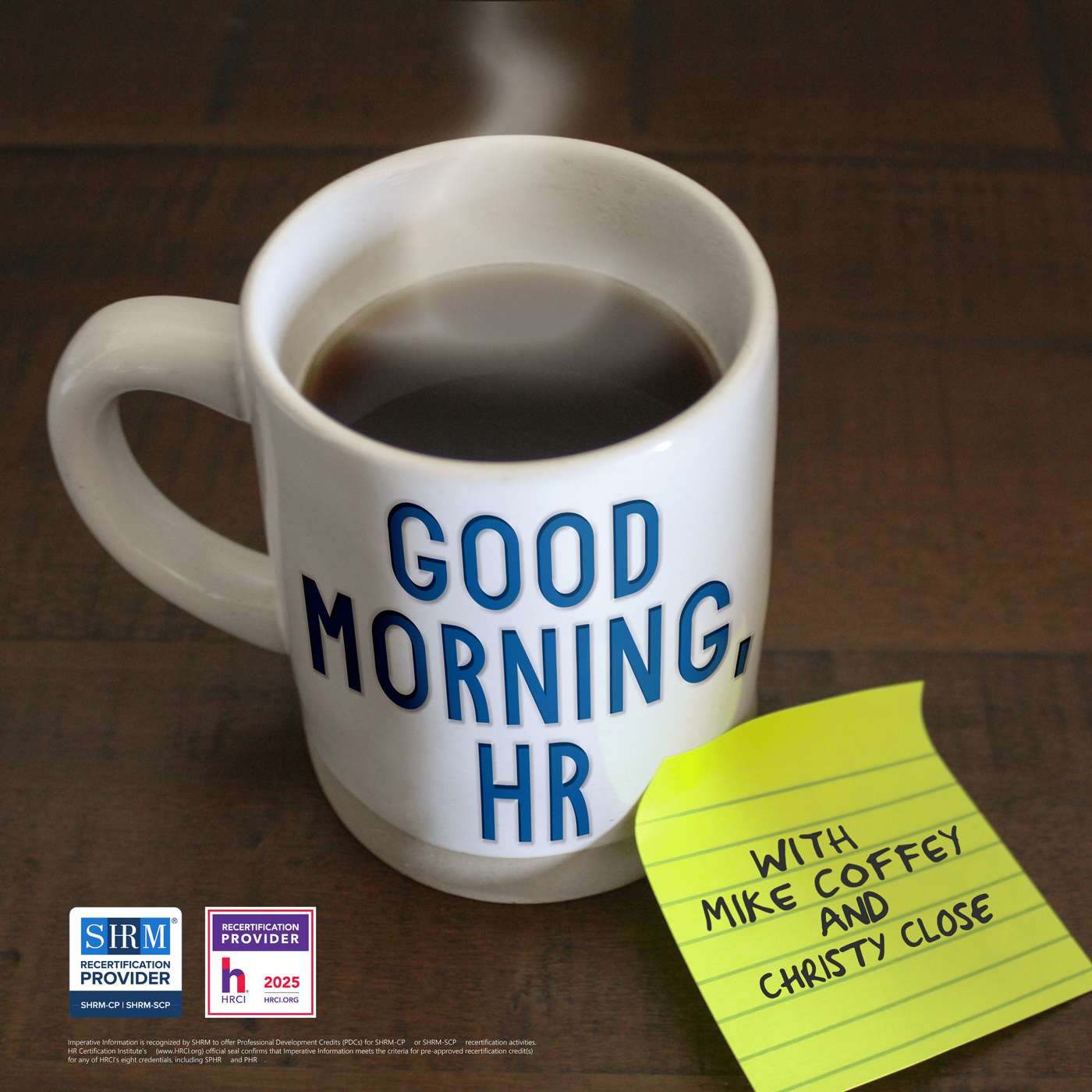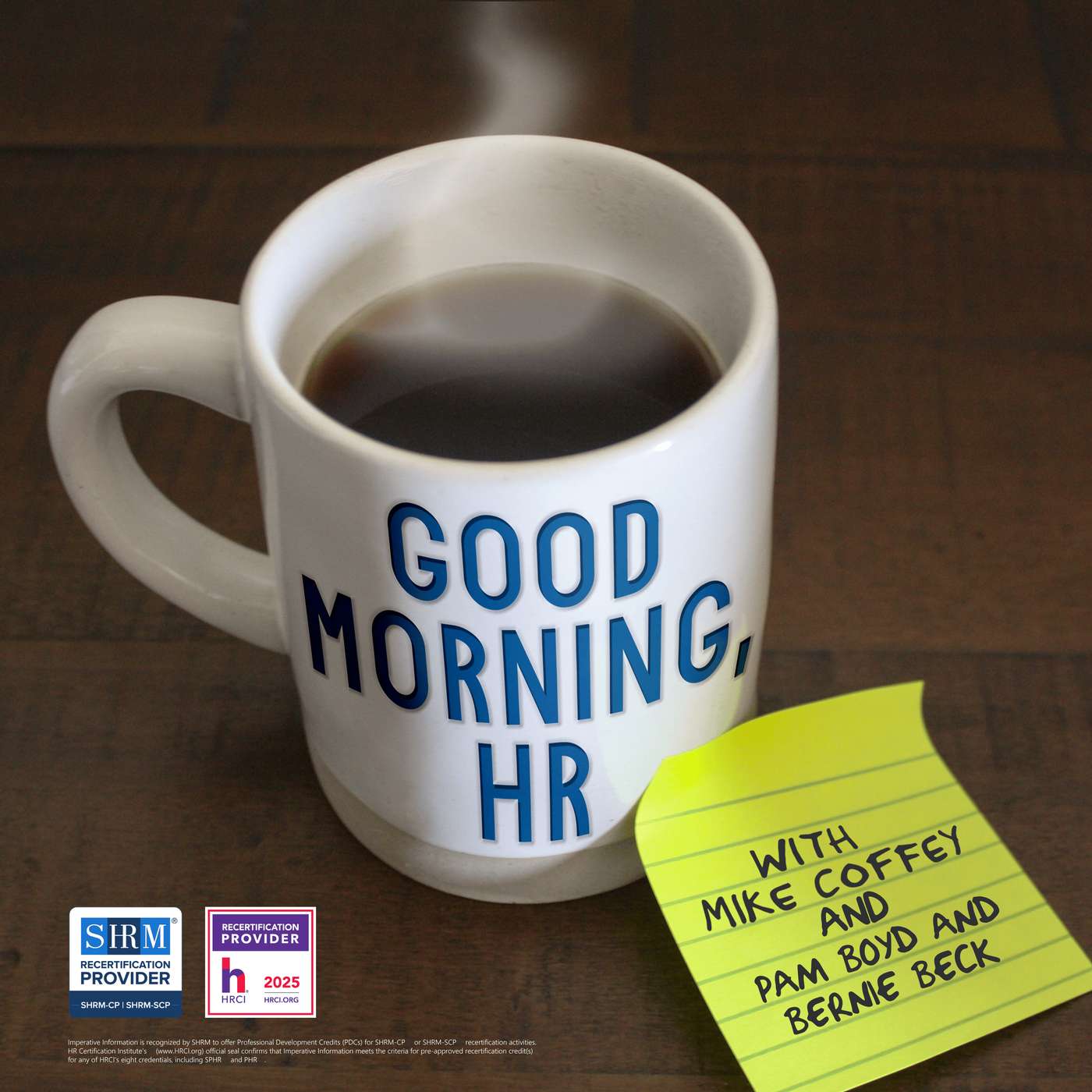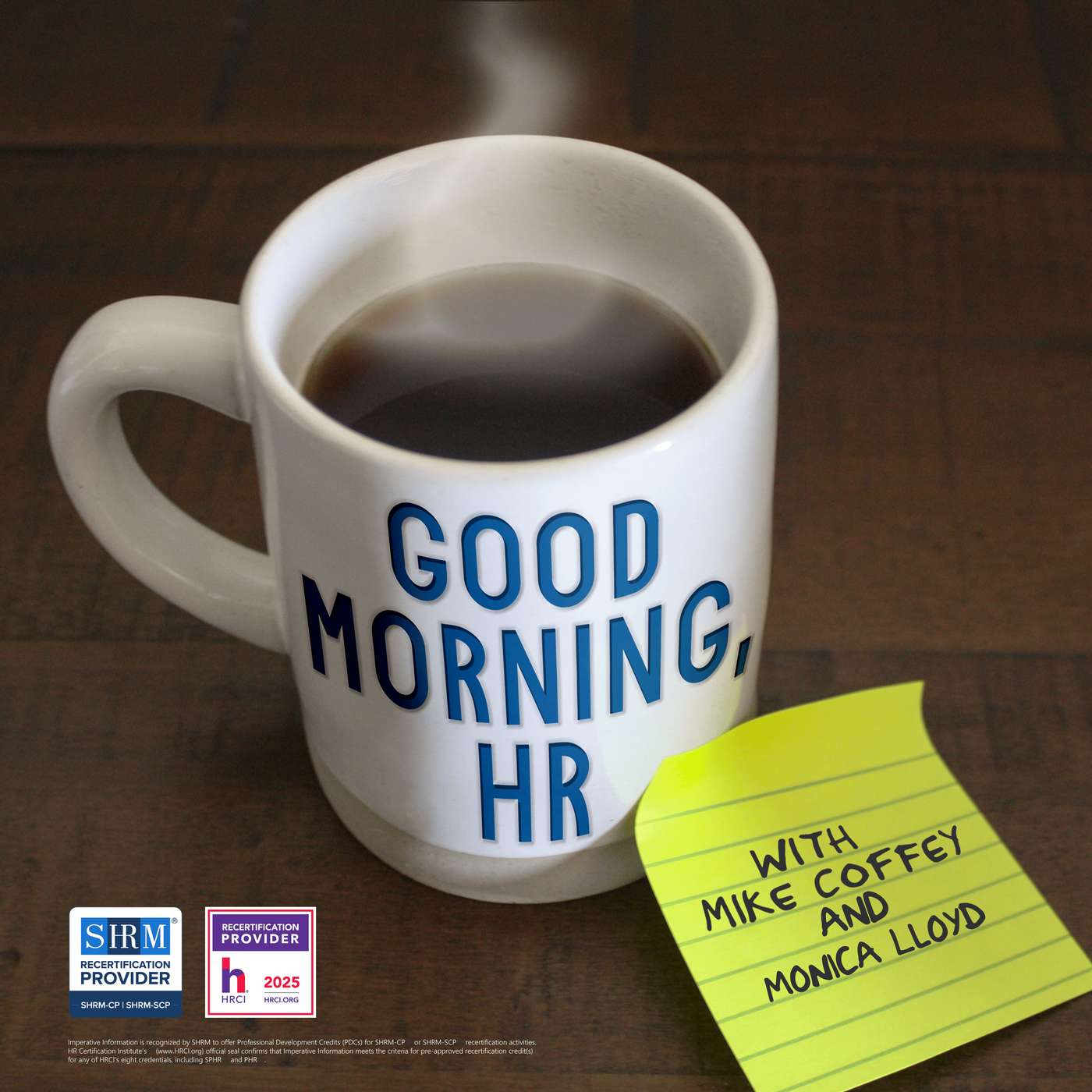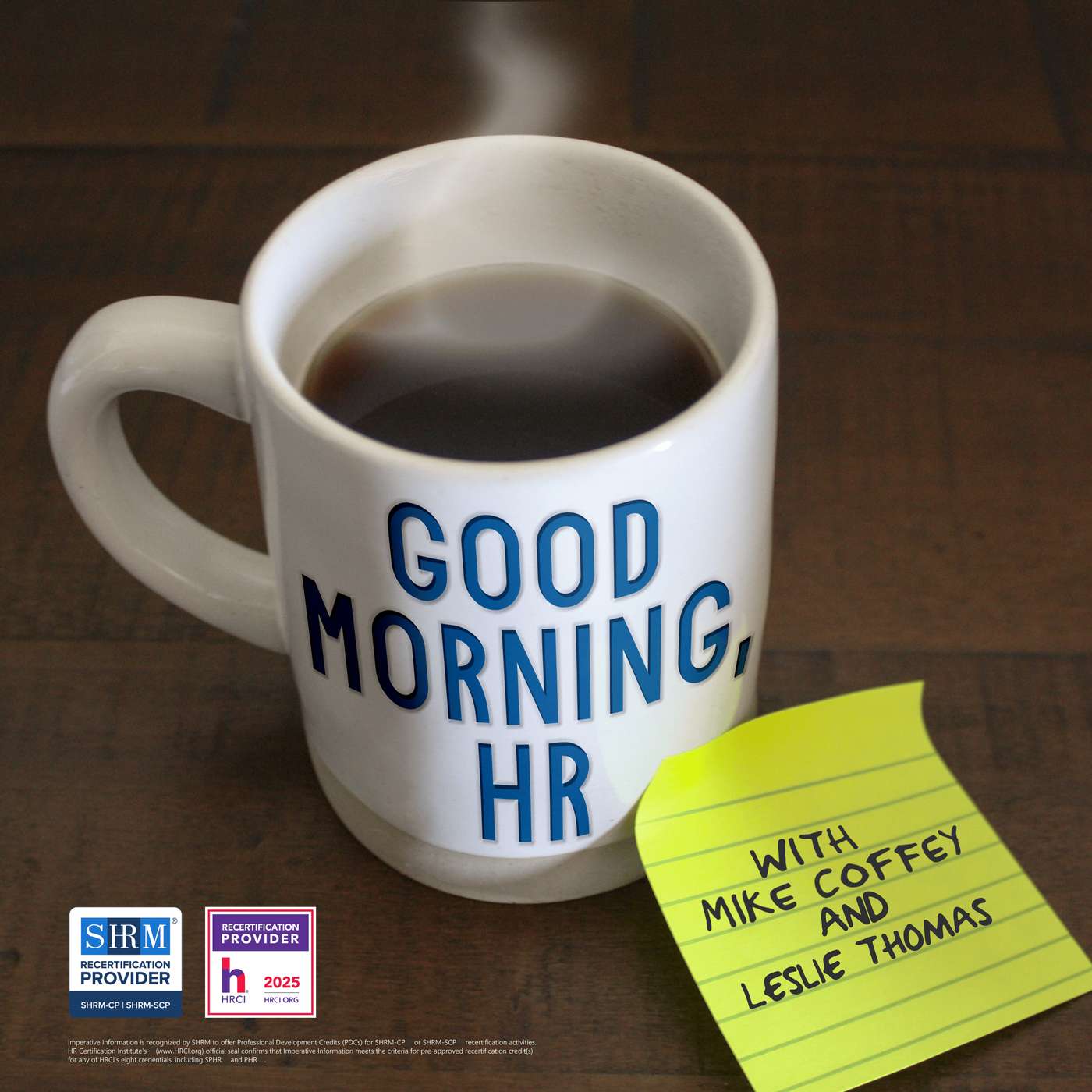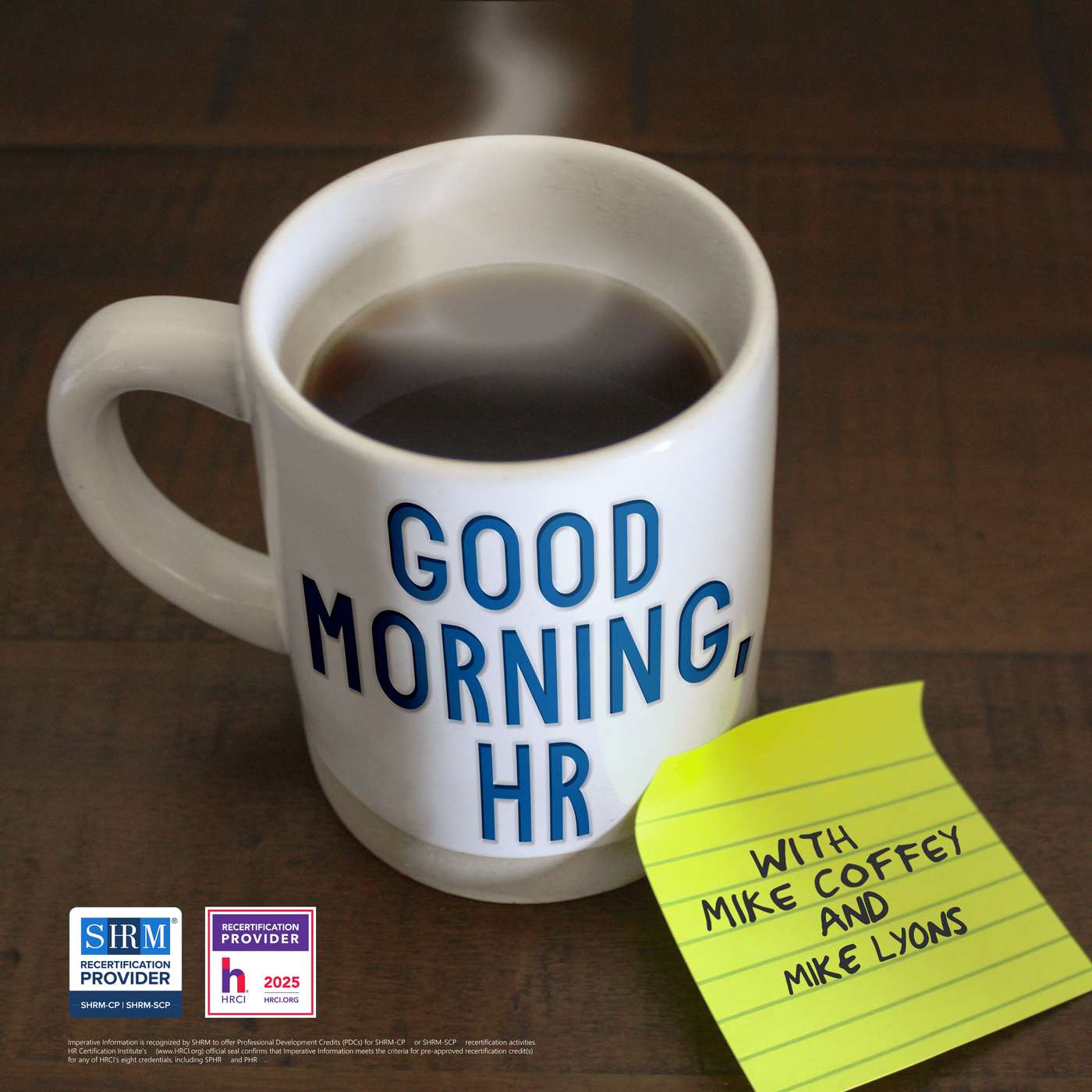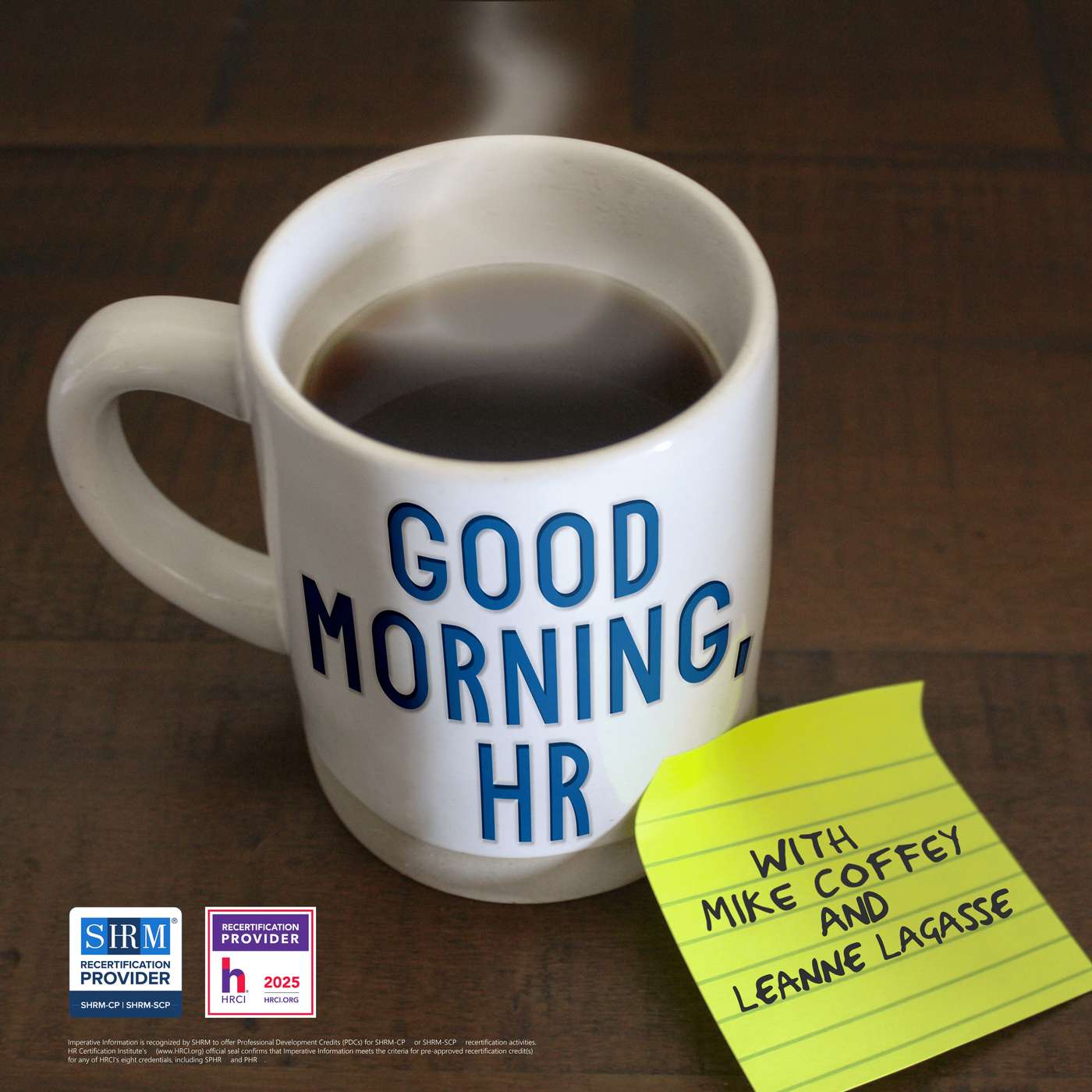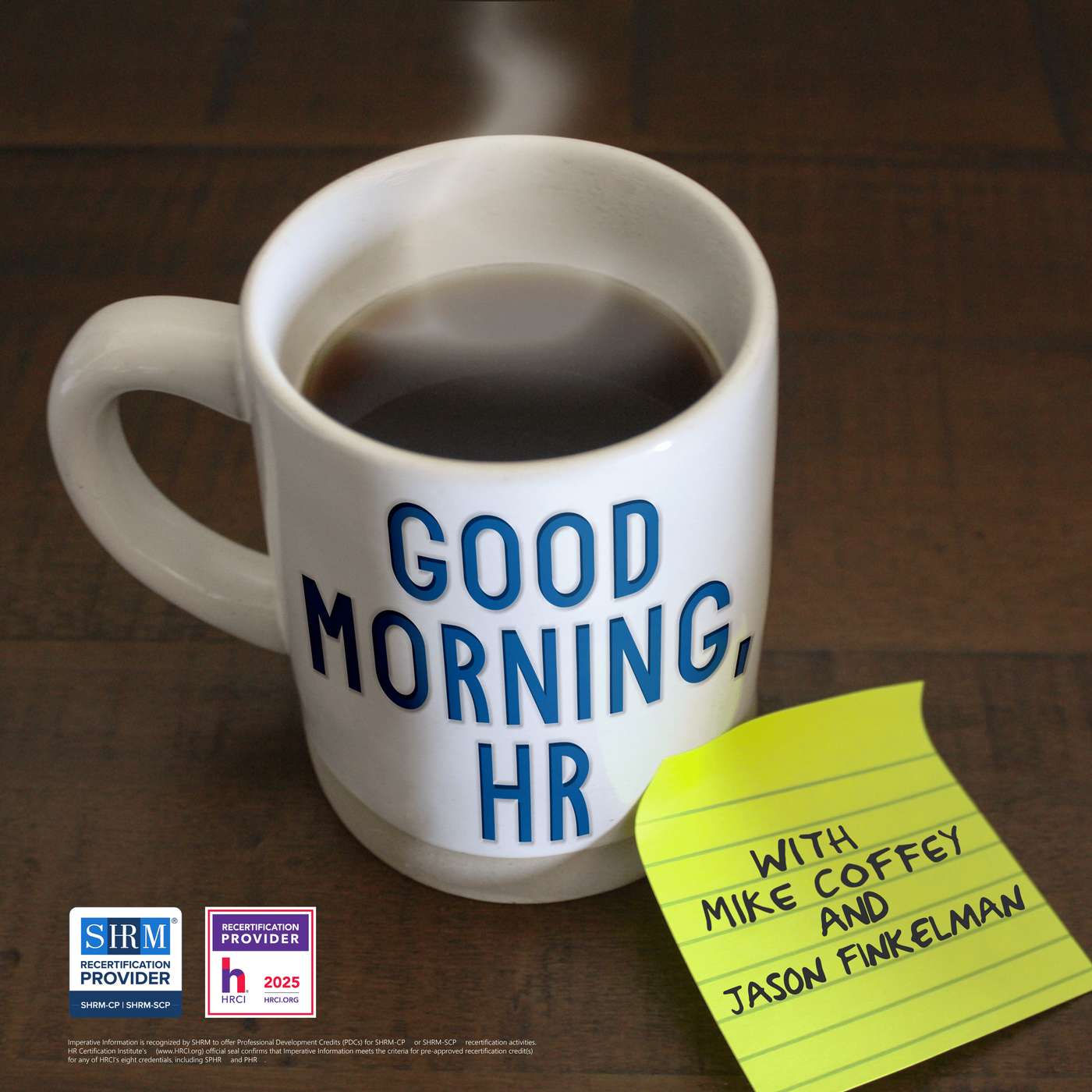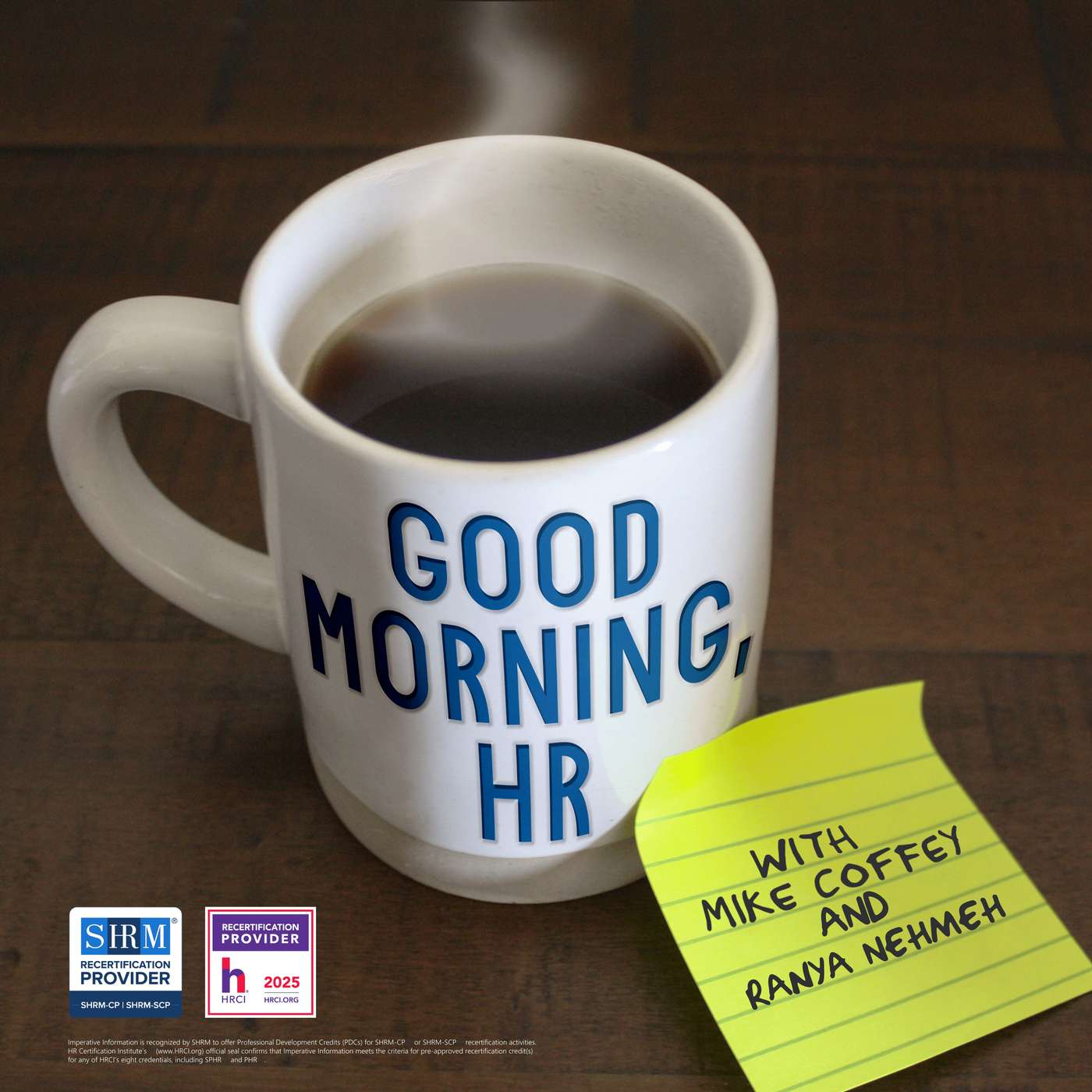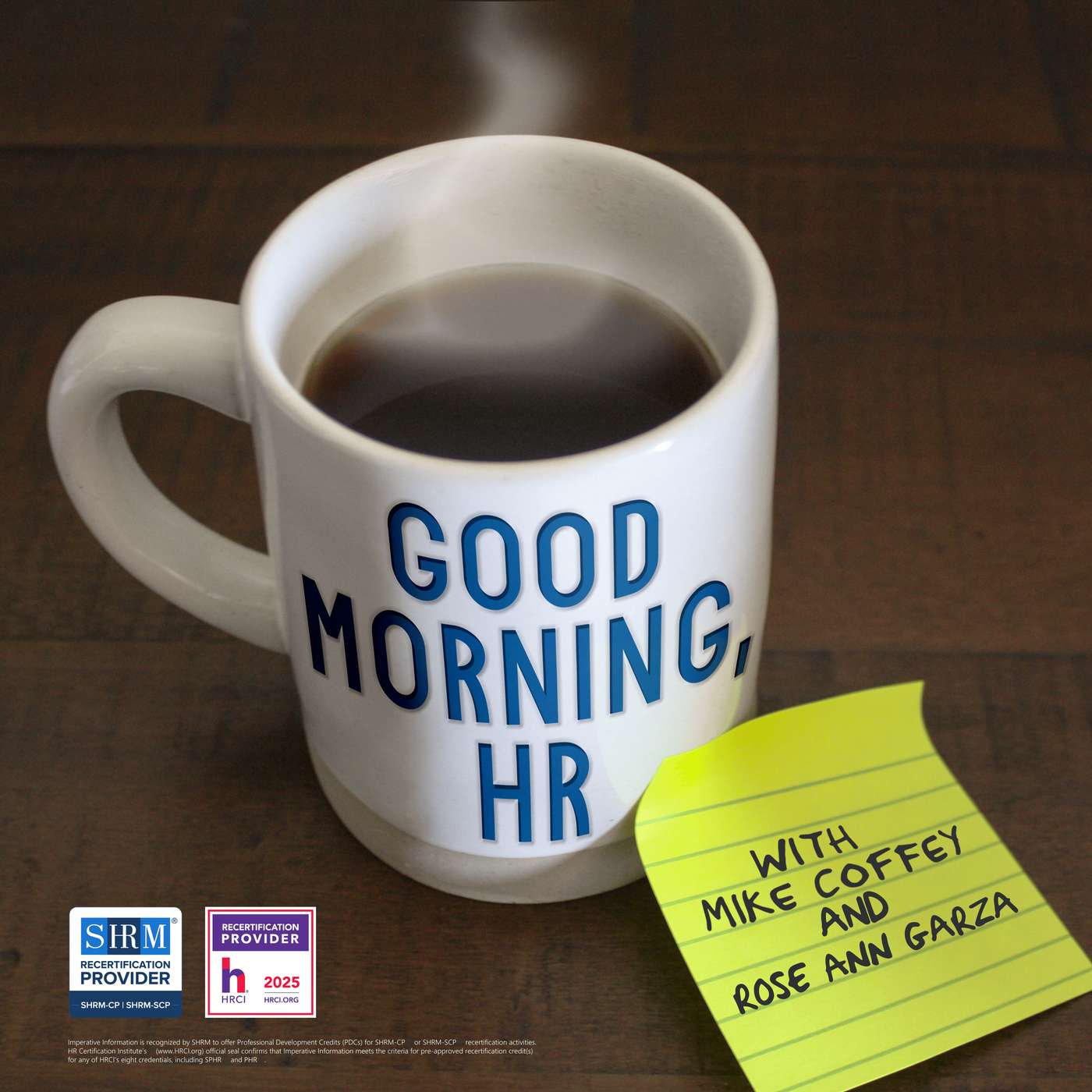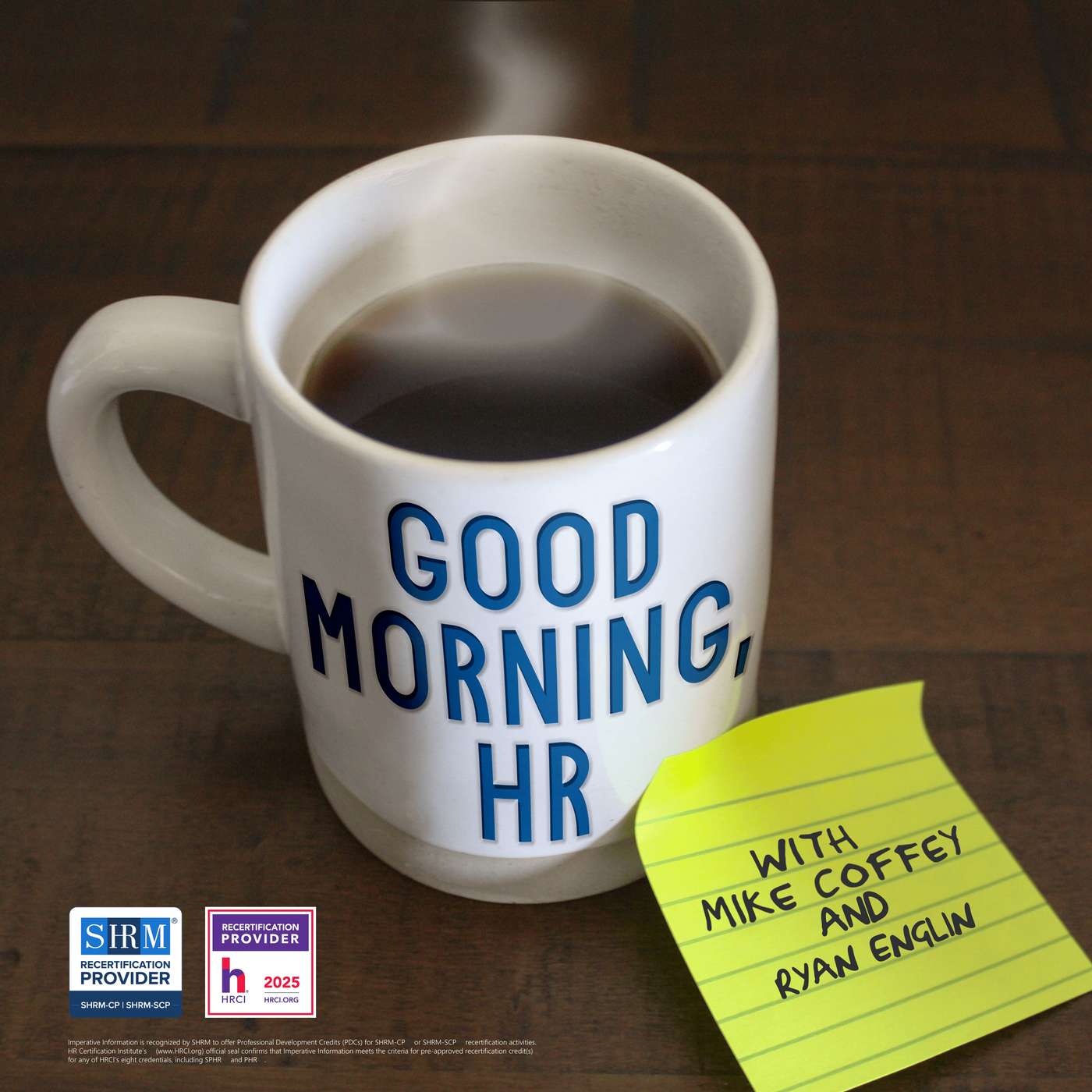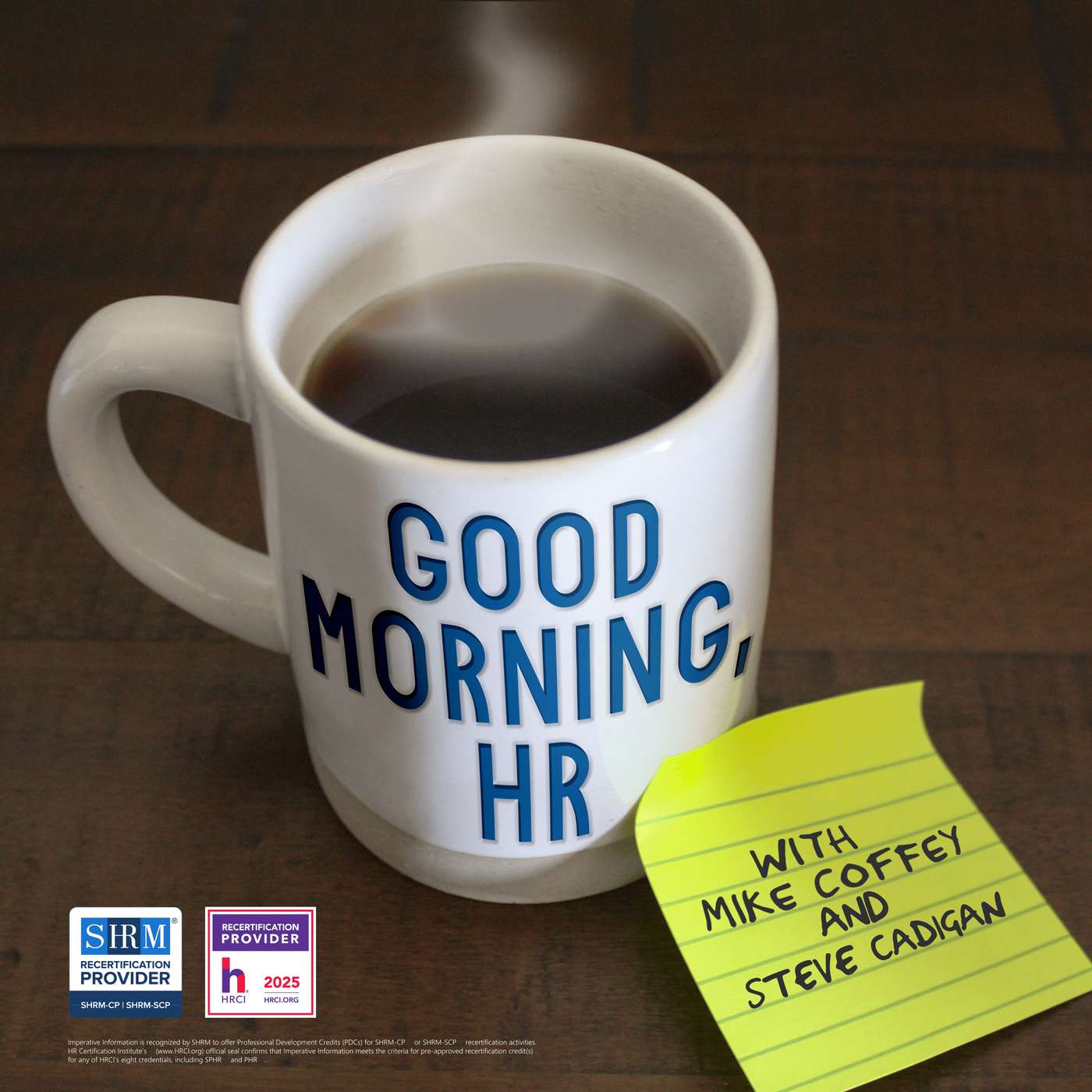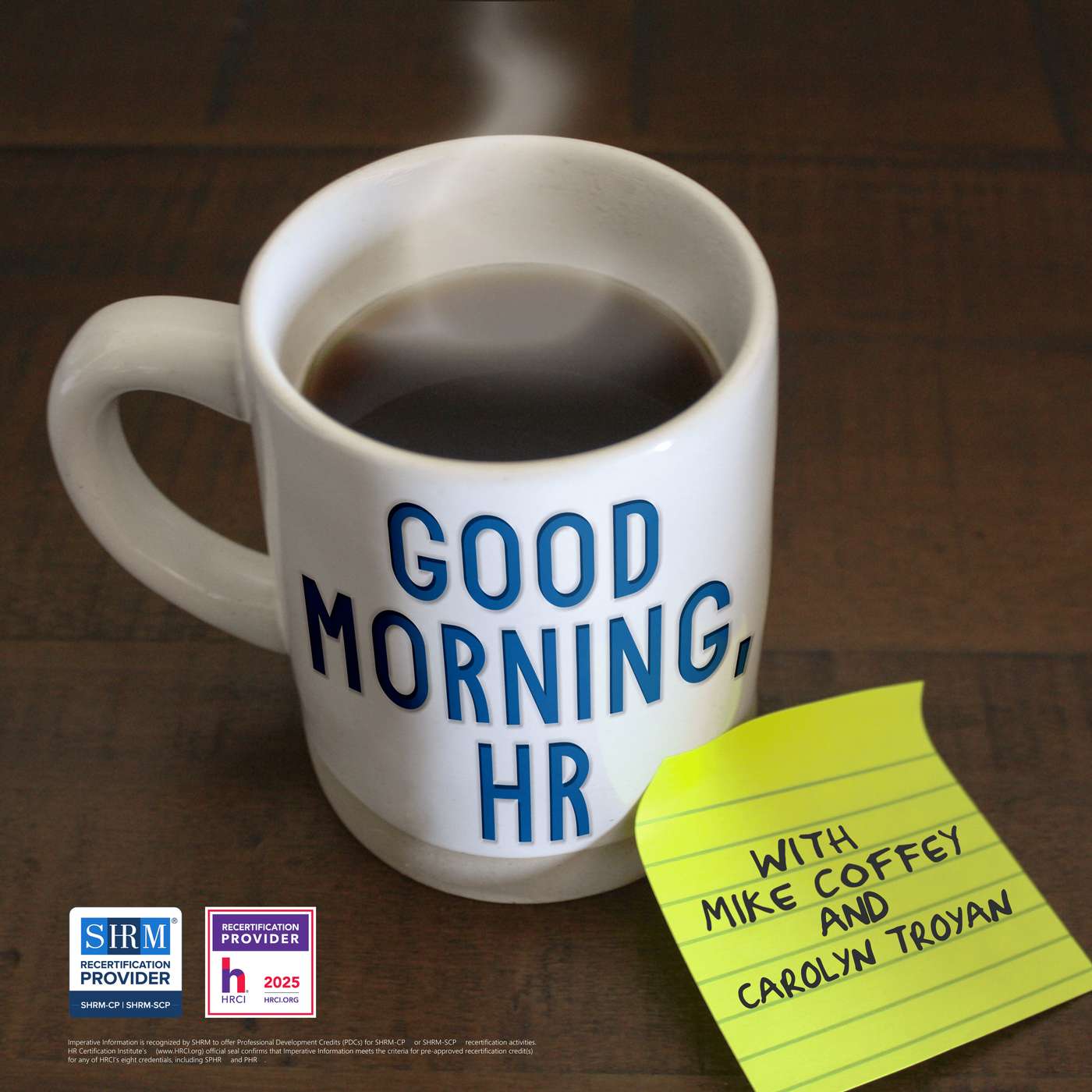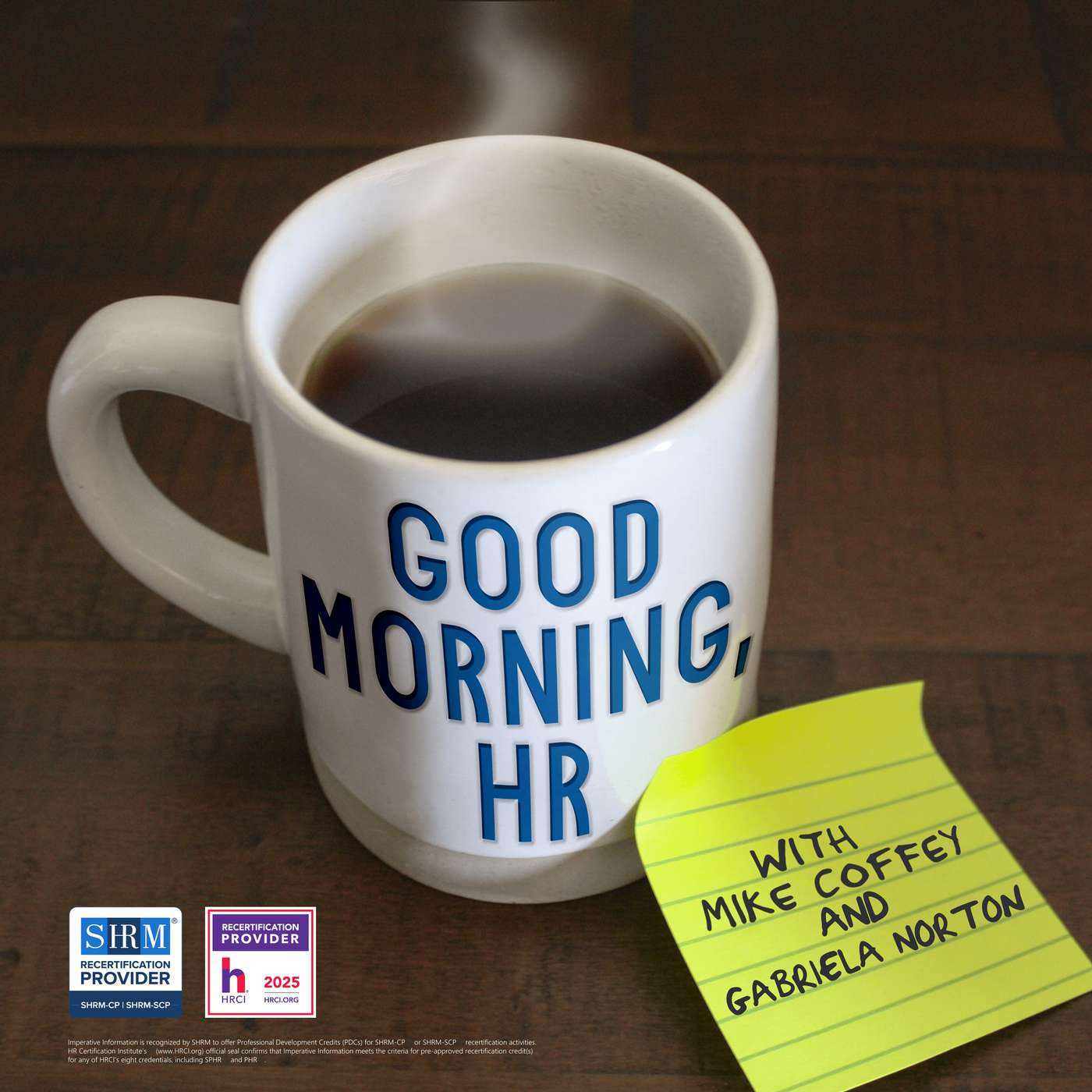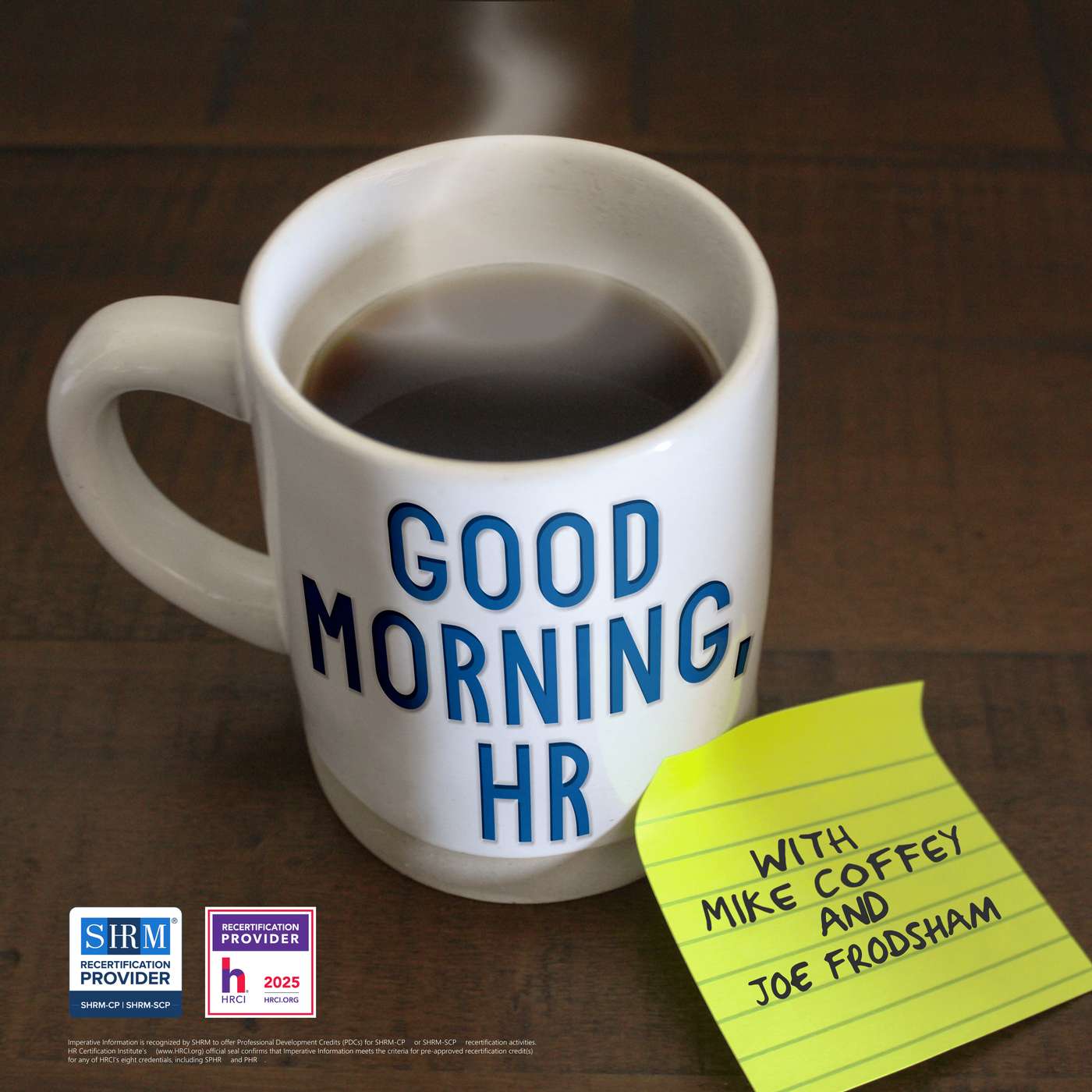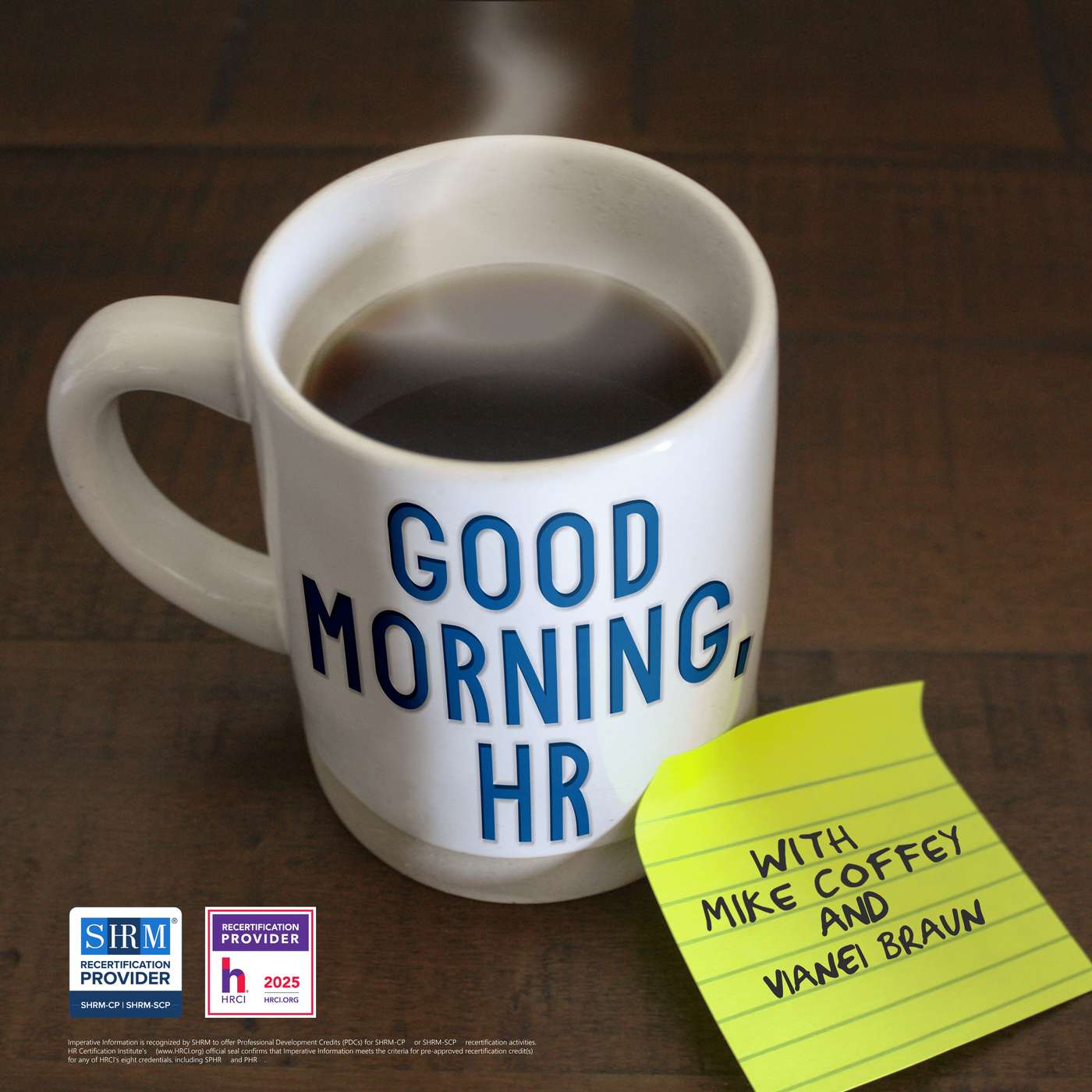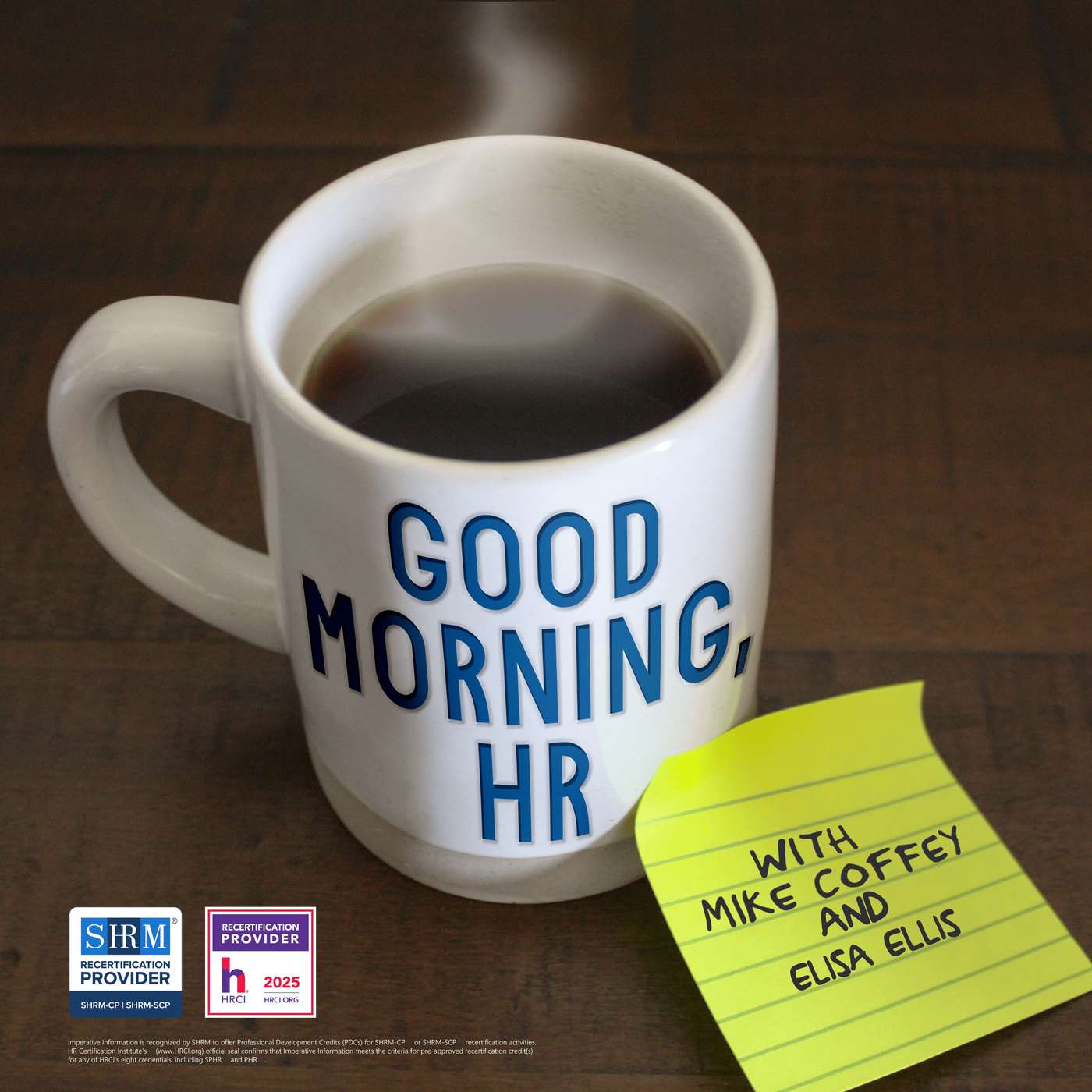From Burned Out to Healthy, High-Capacity Teams with Kelly Bubolz
Description
Something New! For HR teams who discuss this podcast in their team meetings, we've created a discussion starter PDF to help guide your conversation. Download it here https://goodmorninghr.com/EP228
In episode 228, Coffey talks with Kelly Bubolz about the evolving drivers of workplace burnout and practical ways employers can build healthy, high-capacity teams.
They discuss how rapid technological change is straining employee capacity; the shift from pandemic-era mental-health burnout to operational overload; the role of role clarity and workflow optimization in preventing exhaustion; the behavioral warning signs of advancing burnout; the hidden cost of dysfunctional meetings; the impact of remote work structure on cognitive load and productivity; proactive workforce metrics HR should track; cultural myths that drain energy and reinforce burnout; improving cross-functional collaboration and workflow design; and how organizations can align operations around true value creation.
Good Morning, HR is brought to you by Imperative—Bulletproof Background Checks. For more information about our commitment to quality and excellent customer service, visit us at https://imperativeinfo.com.
If you are an HRCI or SHRM-certified professional, this episode of Good Morning, HR has been pre-approved for half a recertification credit. To obtain the recertification information for this episode, visit https://goodmorninghr.com.
About our Guest:
Burnout survivor turned business strategist, Kelly Bubolz knows what it takes to go from running on fumes to being intentional with energy that people want to follow. With 20+ years in HR leadership, she’s transformed her own high stress physical collapse into a powerhouse mission. Guiding the recharge through redesigning the ways of work, cutting through chaos and into sustainable energy.
Kelly Bubolz can be reached at:
https://www.kbtrainingconnections.com
https://www.linkedin.com/in/kelly-bubolz-73b65011
https://www.facebook.com/profile.php?id=61579197120672
https://www.instagram.com/kellybubolz
About Mike Coffey:
Mike Coffey is an entrepreneur, licensed private investigator, business strategist, HR consultant, and registered yoga teacher. In 1999, he founded Imperative, a background investigations and due diligence firm helping risk-averse clients make well-informed decisions about the people they involve in their business.
Imperative delivers in-depth employment background investigations, know-your-customer and anti-money laundering compliance, and due diligence investigations to more than 300 risk-averse corporate clients across the US, and, through its PFC Caregiver & Household Screening brand, many more private estates, family offices, and personal service agencies. Imperative has been named a Best Places to Work, the Texas Association of Business’ small business of the year, and is accredited by the Professional Background Screening Association. Mike shares his insight from 25+ years of HR-entrepreneurship on the Good Morning, HR podcast, where each week he talks to business leaders about bringing people together to create value for customers, shareholders, and community.
Mike has been recognized as an Entrepreneur of Excellence by FW, Inc. and has twice been recognized as the North Texas HR Professional of the Year. Mike serves as a board member of a number of organizations, including the Texas State Council, where he serves Texas’ 31 SHRM chapters as State Director-Elect; Workforce Solutions for Tarrant County; the Texas Association of Business; and the Fort Worth Chamber of Commerce, where he is chair of the Talent Committee. Mike is a certified Senior Professional in Human Resources (SPHR) through the HR Certification Institute and a SHRM Senior Certified Professional (SHRM-SCP). He is also a Yoga Alliance registered yoga teacher (RYT-200) and teaches multiple times each week.
Mike and his very patient wife of 28 years are empty nesters in Fort Worth.
Learning Objectives:
1. Identify the behavioral and operational indicators of burnout before they reach crisis levels.
2. Evaluate how role clarity, workflow design, and meeting structure affect employee capacity.
3. Apply proactive metrics and cultural practices that reduce energy drain and strengthen productivity.

